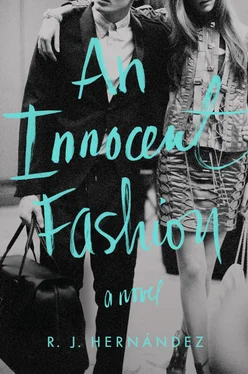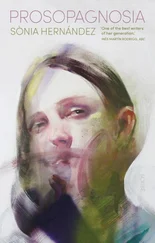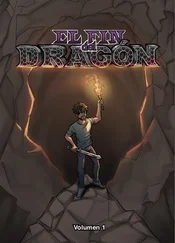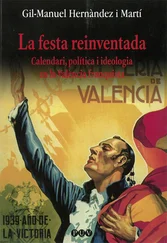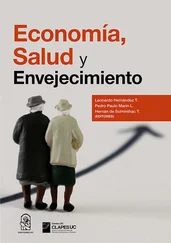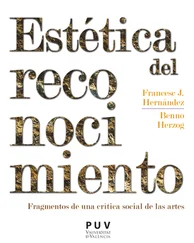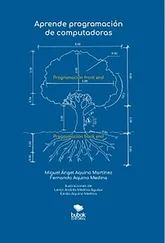Amid this abundance of sprezzatura , the conspicuous dissident was a black leather book, jutting from under the idle arm of a heather-gray cashmere sweater. I pulled it out and traced my fingers over an embossed cover that read Ford . Dorian’s modeling portfolio. The first page was a torn-out magazine spread: Dorian in a chain-mail sweater, illuminated by dramatic silver light. I traced my fingers over his lips and then his eyes, always seeking some diversion, then over the text in the corner that read, SWEATER — DOLCE & GABBANA. It would have been easy to tell myself that this Dorian was somehow “different now,” that in becoming someone new he had excused himself from our entangled relations, yet Dorian appeared quite innocent of any change at all. There was no malice in his eyes, no superior smirk souring his mouth. I closed the portfolio and felt something fall out of the bottom — a piece of heavy sketch paper, folded up into a thick square. I picked it up from the wooden floor and my heart raced as I unfolded it.
A faint groan, as Madeline lifted her head with an effort and then let it drop. Her hair cascaded once more over the side of the bed, the golden vines of a hanging plant.
Before unfolding the last crease, I knew.
It was me. It was my portrait, which Dorian had started on the first day we met but never finished — only now, here I was in full. My mismatched eyes sprawled huge across my cheeks, radiating color, radiating life. The paper trembled in my hand as his voice reverberated through my memory—“ You know who you remind me of.? The Borghese boy — he has all this food, but he looks so hungry. ” I gulped.
Dorian had taken me to Paris.
I returned the paper to the portfolio, and the portfolio to the suitcase, back under the folds of Dorian’s life, and turned wordlessly to leave.
On the way out of Dorian’s apartment, I stopped to sit at the piano. Madeline was right. It was a marvelous piano, the biggest piano I’d ever seen, and as I closed the apartment door behind me, I wondered how they’d gotten it through the door, or if they’d opened up the roof and lowered it inside with a crane.
EDMUND MUST HAVE LOVED THE “UNCLASSIFIABLY SUCCULENT” squid at the Spanish-Japanese restaurant I had chosen for his dinner reservation, because every day thereafter I was assigned a new task by him. I signed thank-you notes and looked up Swedish bed-and-breakfast rates; purchased contact lens solution and bid online for rococo furniture (Edmund wanted an “old throne-like chair, something that was sat on by a king, or at least a famous duke”). I even “shopped around” after work for lavender-scented mothballs, which consisted of sniffing the selection at various boutiques and sending him my detailed reports.
These were all little things — slightly demoralizing — but it didn’t matter. What did matter was that eventually the little things would transform into big things, and for the time being, he knew my name, which was more than could be said for George, or even Sabrina, whose name he still inexplicably believed was Susan. After two weeks I was sure that not only did he know my name, but that it was his favorite name.
Phone calls from Edmund sounded like this:
“Ethan, I need you to RSVP me to Kate’s wedding. Find me a flight to London arriving two days before and departing one day after, and see if Charles can’t set up a car service through the countryside.”
“Ethan, I need you to schedule a fitting with my tailor. Tell him the last two pants he altered for me were too short, and what does he think, I’m shrinking?”
“Ethan, I need lots of contact solution. Leave the bottles all over the place. My eyes are always dry.”
“Ethan, I need you to make me a fruit salad. My housekeepers always forget to pit my cherries, and I can’t just keep dismissing them.”
“Ethan, I need you to deliver my dry cleaning. Pick up the garment bag this evening from my office and tell Caesar that the McQueen shirt has a grease stain on the collar, and that no, it wasn’t me, it was some other fool because I don’t eat greasy food.”
“Also, Ethan — there are two McQueen shirts in that load I just called about, and both look like they have stains, but one of them is distressed on purpose, I’m sure you will be able to tell which.”
“Also, Ethan, please — when you take those shirts, tell Caesar I need a full refund for the cashmere sweater he supposedly laundered. Tell him there was a hair on the collar.”
Despite the volume of his demanding workload, there was never a cruel or derogatory tone in his delegation of any task — on the contrary, Edmund’s exhausted voice had the strain of a person constantly chasing after something with which he could never quite catch up. It was good fortune, not bad, that I credited for my extra workload, although clandestine bathroom breaks became quickly inadequate windows to complete it. While often his more personal errands led me panting around the city on the weekends, office-related tasks required me to stay after-hours at Régine .
At the end of the workday, usually seven or eight o’clock, I would follow Sabrina and George out of the fashion closet. Then, before reaching the elevator, I pretended to need a bathroom visit. Sabrina and George would never dream of waiting for me, so I gazed at the bathroom ceiling until I was sure they had disappeared, then swooped back into the fashion closet to finish my work for Edmund.
Quietly entering Edmund’s office down the hall, I would tidy up papers or computer files according to his instructions, and often reorient his desk, which a much-consulted feng shui book suggested he was in the habit of repositioning to channel “creativity chi.” Because he never actually called me to his office during work hours, I was determined that neither Sabrina nor George should know about it — especially not George. Sabrina already had a post at Régine , but George would easily sabotage my efforts to benefit his own ladder-climbing, and if he knew Edmund had taken a liking to me — well, I didn’t even want to think of what consequential toxins he could spread to pollute the air.
So that George would never suspect, I began to attack every phone call before the completion of the first ring. Sometimes the hairs on the back of my neck would stiffen a millisecond before the phone rang, and I was answering, “ Régine ,” before George had even turned his orange head. If he looked over while I was taking down Edmund’s instructions, I’d roll my eyes toward him like it was just another PR person on the line, and when Edmund hung up I would stay on the phone for a few seconds longer than necessary, nodding my head to pander, “Of course, Rachel, we’ll get the Valentino to you by this afternoon,” or “Have a good day, Simon.”
Edmund wasn’t just my hero anymore — some far-off figure, a poster on a classroom wall. He was the closest chance I had to realizing the life I wanted, the gatekeeper to my dreams. Edmund was going to save me.
One day, after several weeks of attuning myself to his every need, my neck hairs tingled while I was standing on a ladder hoisting a box of hats: Edmund . I could feel him. I prepared myself to scramble down the ladder, but there was no phone call.
The closet door swung open. “Which one of you is Ethan?”
From above, I watched Edmund’s half-plucked hairline soar into view like a pale, shiny moon. Arm emerging from under a green capelet, he pointed a bejeweled finger at me—“You’re Ethan, right?”
I nodded with petrified shock.
He gestured with a yawn toward George, who appeared as stunned as a person about to get run over by a cab. “Help Ethan, please,” Edmund instructed.
Читать дальше
